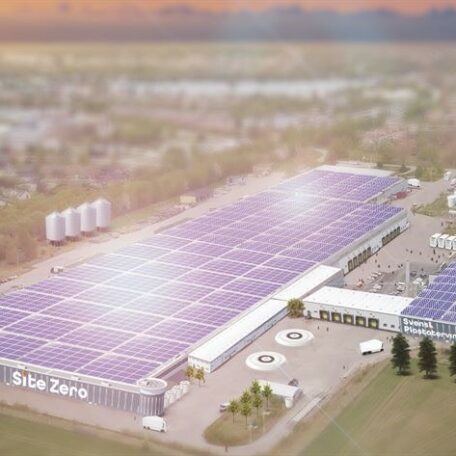Ground-breaking facility to sort all household plastic packaging in Sweden
Smart Packaging Europe supporter and EUMEPS member BEWI will recycle Expanded Polystyrene (EPS) in what is expected to be one of the largest and most technologically advanced waste management facilities in the world: Site Zero.
To this end, BEWI signed a letter of intent with Swedish Plastic Recycling. Swedish Plastic Recycling is the organisation that provides the nationwide system for collecting and recycling plastic packaging waste through FTI. FTI is funded by the companies that place packaging on the Swedish market under what is called extended producer responsibility (EPR).
Site Zero will be able to manage all plastic packaging waste from Swedish households and make plastics circular – and do it completely without any CO2 emissions. The plant will be able to sort around 200,000 tonnes per year, doubling today’s capacity, while at the same time sorting three times as many plastics than today. Fully automated, it will use 60 near infra-red (NIR) sensors for sorting along an approximately 5‑km-/3.1‑mile-long conveyor belt. It will be powered by renewable energy from solar panels.
One of the plastics that Site Zero will sort for recycling is EPS. EPS will be collected from consumers at 5,000 recycling stations that FTI has installed across Sweden. At Site Zero, the EPS will be sorted and packed into bales that BEWI picks up and recycles into new EPS products. The EPS volume from the new plant is estimated to amount to 1,000 to 3,000 tonnes per year. BEWI itself has committed to collecting 45,000 tonnes of EPS for recycling by the end of 2024 and 60,000 tonnes by the end of 2026, also from other locations. Yet, the EPS from Site Zero will be an important contributor to reaching these targets.
The total investment in Site Zero is expected to be SEK 1 billion (around 97.5 million EUR), mostly funded by the industry itself. It marks a great step forward for the further increased recycling of EPS in the Nordic countries. The project also demonstrates one of multiple viable options to organise separate collections and sorting of all household plastic packaging waste for recycling, including EPS. The EPS industry actively supports implementing these options across Europe.
Besides in highly efficient insulation products, EPS is used in specific, essential packaging applications, including for large electronics and electrical appliances. It also has a structure and look that makes it recognisable. Once separately collected and/or sorted based on this, EPS is easily recyclable, as has been demonstrated by high, and further increasing, recycling rates across Europe for many years. Already in 2017, recycling rates for EPS post-consumer packaging waste exceeded for example 56% in Austria, 52% in Belgium and Norway, 47% in the Netherlands, and 46% in Germany.
